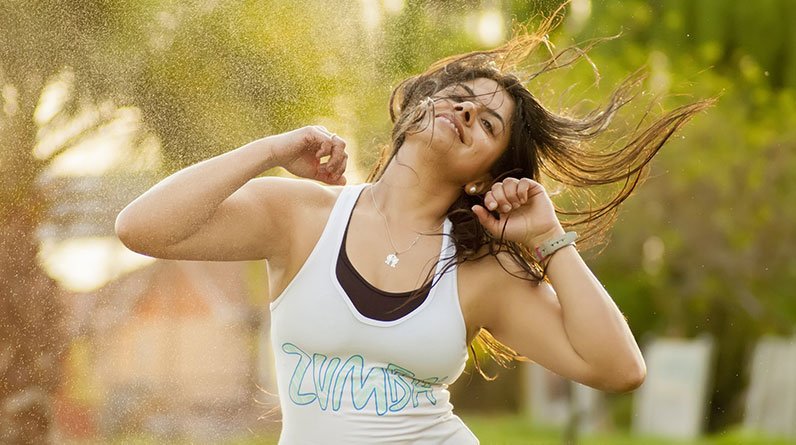
The Role Of Exercise In Promoting Healthy Skin
Regardless of one’s abilities as a person who occasionally exercises or is a high-performing athlete, engagement in physical activity can yield significant benefits. In addition to enhancing one’s physical fitness, a notable advantage of regular physical activity is the promotion of optimal skin health and a vibrant complexion.
In what follows, we’ll be discussing the role of exercise in promoting healthy skin. More specifically, we’ll discuss the science behind blood flow and skin elasticity in skin health, the anti-aging benefits of exercise, and the role endorphins play in stress relief and skin health.
Physical Activity and Skin Rejuvenation
Most people know the physical benefits of exercise, such as improved cardiovascular health, increased muscle mass, and weight loss. However, many may not know that regular physical activity is also important for skin rejuvenation.
One of the ways exercise promotes skin rejuvenation is through increased blood flow to the skin. During physical activity, the body’s demand for oxygen and nutrients increases, prompting the heart to pump more blood to the muscles and skin. The enhanced circulation of blood supplies the skin with oxygen and essential nutrients, supporting cellular function and rejuvenation.
Improved circulation resulting from exercise also benefits the skin by facilitating the removal of waste products and toxins from the body. In addition, improved circulation supports lymphatic drainage, which helps reduce skin inflammation, leading to a clearer and more youthful appearance.
Exercise also promotes the production of growth factors that stimulate cell growth and regeneration. These growth factors include human growth hormone (HGH), which is released during intense physical activity. HGH promotes cell growth and division, supporting the renewal of skin cells and leading to improved skin texture and tone.
Finally, in addition to the physical benefits of exercise, the mental and emotional benefits of regular physical activity can also positively impact skin health. Physical activity can aid in alleviating tension and apprehension and help prevent skin problems such as acne and psoriasis. Regular physical activity can also improve sleep quality, which is essential for skin rejuvenation and repair.
Ultimately, incorporating regular exercise into your daily routine can have direct and indirect physical and mental benefits that support healthy, glowing skin.
Anti-Aging Benefits of Exercise
The anti-aging benefits of exercise have been widely researched and documented in recent years, with numerous studies highlighting the positive effects of exercise on collagen production, cellular turnover, and the reduction of oxidative stress.
Abundantly present in our skin, collagen is a protein responsible for giving it strength, elasticity, and a youthful appearance. With aging, our bodies generate a reduced amount of collagen, resulting in the formation of wrinkles, subtle lines, and drooping skin. Regular exercise, however, has been shown to promote collagen production, thereby reducing the signs of aging and improving skin health.
In addition to promoting collagen production, regular exercise also supports cellular turnover, which is the process by which old skin cells are replaced with new ones. This process is essential for maintaining healthy skin as it helps to prevent the buildup of dead skin cells, which can lead to clogged pores and a dull complexion. Regular exercise has been shown to enhance cellular turnover, leading to brighter, clearer, and healthier-looking skin.
Finally, regular exercise can also help to reduce oxidative stress in the body. Oxidative stress is a process that occurs when the body’s antioxidant defenses are overwhelmed, leading to an accumulation of harmful molecules called free radicals.
Premature aging and various skin issues can arise from the harm inflicted on skin cells by free radicals. Physical activity has been demonstrated to decrease oxidative stress levels by increasing the body’s production of antioxidants, which can neutralize free radicals and protect the skin from damage.
The “Feel Good” Hormone
Exercise is not just good for the body, but it can also do wonders for the mind. One of the most well-known mental benefits of exercise is the release of endorphins, also known as “feel-good” hormones. Originating in the brain, these hormones play a crucial role in eliciting sensations of bliss and joy.
During exercise, the body releases endorphins as a natural response to physical activity. The release of endorphins is triggered by the brain’s perception of pain, which is common during physical activity. Endorphins block pain signals to the brain and create a sense of well-being and euphoria.
The release of endorphins during exercise can have a positive impact on skin health as well. Stress is a common trigger for skin issues such as acne, psoriasis, and eczema.
Endorphins have been shown to reduce cortisol, a stress hormone that contributes to skin inflammation and aging. Reduced cortisol levels can help promote healthy skin and a youthful glow.
Additionally, endorphins play a role in reducing inflammation in the body, including skin inflammation. Chronic inflammation is a significant factor promoting skin aging, wrinkles, and other skin problems.
Finally, the release of endorphins can lead to better sleep quality, which is essential for skin health and rejuvenation. More sleep increases the length of time that the skin can rejuvenate during the night.
Final Thoughts
Exercise plays a vital role in promoting healthy skin. The release of endorphins, increased blood flow, improved circulation, the production of growth factors, and reduction of oxidative stress are essential ways regular physical activity can benefit skin health.
Whether it’s a brisk walk, a yoga class, or a strength training session, incorporating regular physical activity into your daily routine can significantly impact your skin health, helping you achieve a healthy, glowing complexion.

